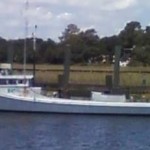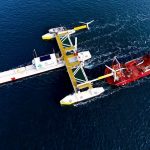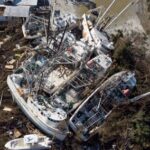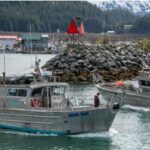Tag Archives: “precautionary principle”
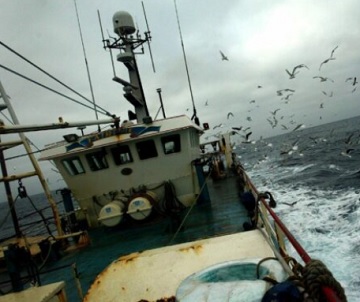
Monkfish win for Scottish fleet after UK-Norway talks
A deal struck between the UK and Norway will help to offset “over-precautionary” catch advice affecting monkfish catches in the North Sea. The bilateral talks between the two countries have delivered fishing opportunities for the Scottish fleet in 2023. Agreements on access and quota exchanges of fish stocks were signed. Scottish Fishermen’s Federation chief executive Elspeth Macdonald said: “Reaching this deal provides certainty and clarity between the parties for the year ahead. “Due to over-precautionary catch advice from Ices… that industry considers to be unjustified, the inward transfer of monkfish from Norway is to be welcomed. >click to read< 18:02
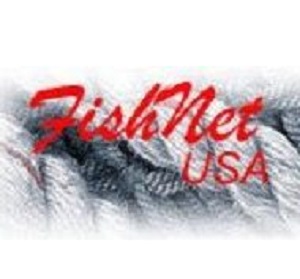
Wind farms: Where are all of the ocean saviors?
The precautionary principle has deep roots finding expression in sayings such as ‘an ounce of prevention is worth a pound of cure’ or ‘better safe than sorry’. The use of the precautionary principle in ecosystem management is especially important,,, Repeated failures of management highlighted by the collapse of northern cod off Canada, the California sardine fishery, and herring, sandeels, blue whiting and capelin stocks in the North Sea have demonstrated the need for this approach in order to help address scientific uncertainty. Yet when it comes to protecting huge swaths of ocean,,, Clog  our near shore and offshore waters with hulking (approaching 1,000 feet tall today, who knows what’s in store for tomorrow?) structures supporting huge rotors with tips moving through the air at velocities approaching 200 miles per hour? So what? Festoon our sea beds with electrical cables carrying huge amounts of electricity, And what of undersea server farms,,, >click to read< 15:43 Nils E. Stolpe/FishNet USA. © 2021 Nils E. Stolpe, July 31
our near shore and offshore waters with hulking (approaching 1,000 feet tall today, who knows what’s in store for tomorrow?) structures supporting huge rotors with tips moving through the air at velocities approaching 200 miles per hour? So what? Festoon our sea beds with electrical cables carrying huge amounts of electricity, And what of undersea server farms,,, >click to read< 15:43 Nils E. Stolpe/FishNet USA. © 2021 Nils E. Stolpe, July 31
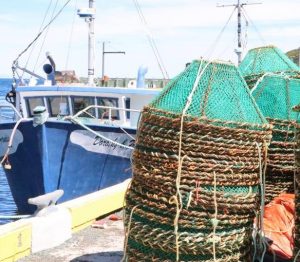
Fishermen push back on new approach to determine health of snow crab stocks
Fishermen are pushing back this week at a Department of Fisheries and Oceans (DFO) plan to bring in a precautionary approach principle to help determine the overall health of snow crab stocks around Newfoundland and Labrador. The approach is used to assess the health of other fishery stocks. The proposal has three levels or zones of classification — critical, cautious and healthy. >click to read<17:15
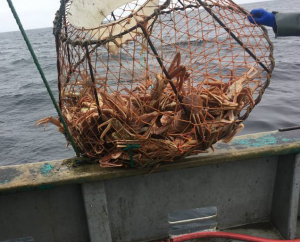
Precautionary approach a step towards stronger fisheries management: DFO – Fishermen concerned
After attending a Department of Fisheries and Oceans (DFO) consultation with harvesters in Gander Nov. 21 about the proposed application of a precautionary approach for the species, Neil Stuckless feels his quota could be at risk. According to DFO, a precautionary approach principle would establish the overall health for snow crab in Newfoundland and Labrador. The proposal has three levels of classification – critical, cautious, and, healthy. Based on an area’s health classification, a percentage based total allowable catch (TAC) would be applied. While DFO says it has been working on this approach for some time, it’s the first area harvesters have heard of it.>click tp read<10:49
Rick Baumann writes, Is seismic testing, drilling for oil necessary?
From the letter: i.e. – our commercial fishermen have been and are being heavily regulated right now by the Precautionary Principle because conservative lawmakers won’t fund real time quantification of those resources. The “best available science” is way out of date – so precautionary regulations were put in place to protect the resources – even though little or no real time science existed to justify them. Why shouldn’t the same principle be applied when it comes to Atlantic drilling? Read more here 09:05
Better Science Means More Fish
 “States should apply the precautionary approach widely to conservation, management and exploitation of living aquatic resources in order to protect them and preserve the aquatic environment. The absence of adequate scientific information should not be used as a reason for postponing or failing to take conservation and management measures (from the United Nations Food and Agricultural Organization’s Code of Conduct for Responsible Fisheries).” Or in fewer words, if you aren’t completely sure of the outcome, don’t take an action. It’s called the “precautionary principle”,,,Read more here onlinefisherman.com 14:16
“States should apply the precautionary approach widely to conservation, management and exploitation of living aquatic resources in order to protect them and preserve the aquatic environment. The absence of adequate scientific information should not be used as a reason for postponing or failing to take conservation and management measures (from the United Nations Food and Agricultural Organization’s Code of Conduct for Responsible Fisheries).” Or in fewer words, if you aren’t completely sure of the outcome, don’t take an action. It’s called the “precautionary principle”,,,Read more here onlinefisherman.com 14:16



































